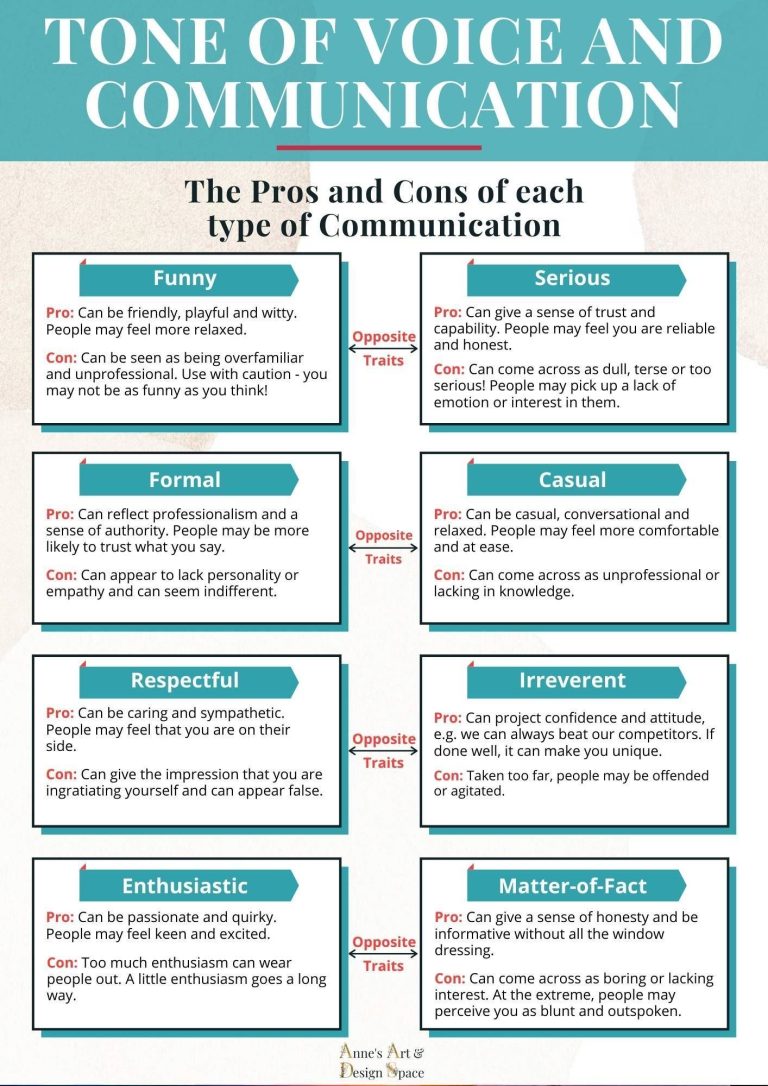Fluency And Eloquence are Skills Anyone Can Learn
Fluency and eloquence are skills anyone can learn. With practice and dedication, individuals can enhance their speaking and writing abilities to communicate effectively and persuasively.
These skills are valuable in various aspects of life, from professional settings to personal interactions. Developing fluency and eloquence can lead to improved confidence, better opportunities, and stronger connections with others. By understanding the principles of effective communication and practicing techniques to express ideas clearly and articulately, individuals can sharpen their fluency and eloquence.
Whether it’s in public speaking, writing, or daily conversations, mastering these skills can have a positive impact on one’s personal and professional growth. The journey to becoming more fluent and eloquent is accessible to anyone willing to put in the effort and commitment.
1. Importance Of Fluency And Eloquence
Fluency and eloquence are vital skills that can be acquired by anyone. Mastering these abilities enables effective communication and empowers individuals to express themselves confidently and persuasively.
Being fluent and eloquent in communication is crucial in both personal and professional settings. These skills not only allow you to express yourself effectively but also leave a lasting impression on others. Whether it is delivering a presentation, participating in a discussion, or even having a casual conversation, fluency and eloquence play a vital role in conveying your message with clarity and impact.
1.1 Enhancing Communication Skills
Fluency and eloquence go hand in hand when it comes to enhancing your overall communication skills. Fluency refers to the ability to express your thoughts fluently and effortlessly, without stumbling or hesitation. Eloquence, on the other hand, focuses on using persuasive and captivating language to engage your audience.
By honing these skills, you can turn complex concepts into simple, digestible information. You become better equipped to articulate your ideas, ensuring that your message is well-received and understood by others. When your communication is smooth and eloquent, it becomes easier for people to connect with you and grasp the essence of your message.
1.2 Building Confidence
Fluency and eloquence also play a pivotal role in building your confidence. When you are able to communicate fluently and eloquently, you feel more assured in expressing yourself and sharing your thoughts or opinions. This increased confidence translates into better interactions with others, as you are able to convey your ideas and perspectives without any self-doubt or fear of judgment.
Moreover, building confidence in your communication skills can have a profound impact on various aspects of your life. It enables you to make a strong impression during job interviews, negotiate effectively, and build meaningful relationships. Fluency and eloquence empower you to articulate your thoughts with conviction, helping you express your true potential and achieve your goals.
2. Understanding Fluency
Fluency in communication is an essential skill that can be learned and mastered with practice. Understanding fluency involves grasping its definition, characteristics, and the benefits it brings to effective communication. Let’s delve into the concept of fluency and its significance.
2.1 Definition And Characteristics
Fluency refers to the ability to express oneself coherently, confidently, and smoothly without hesitation in any language or subject. A key characteristic of fluency is the effortless flow of speech or writing, which conveys ideas clearly and comprehensibly to the audience.
2.2 Benefits Of Fluent Communication
- Enhanced understanding: Fluent communication ensures that ideas are expressed clearly and understood easily by the listener or reader. This fosters effective communication and meaningful interactions.
- Confidence and credibility: Being fluent in communication helps in projecting confidence and authority, thereby enhancing one’s credibility in professional and social settings.
- Improved relationships: Fluent communicators can build better connections and relationships as they can express themselves clearly, leading to stronger interpersonal bonds.
- Efficient problem-solving: Fluent communication facilitates swift exchange of ideas, opinions, and information, allowing for efficient resolution of issues and conflicts.
3. Developing Fluency
Developing fluency is a crucial step in becoming an eloquent speaker. It involves honing your ability to express yourself effortlessly and articulately in any given language. Let’s explore two effective strategies for cultivating fluency.
3.1 Practice And Repetition
Practice and repetition are fundamental to enhancing fluency. Engage in daily conversation, read aloud, or recite passages to internalize the rhythm and flow of the language. By consistently practicing, you can improve your language fluency and comfort level.
3.2 Learning From Native Speakers
Interacting with native speakers provides invaluable exposure to natural speech patterns, expressions, and colloquialisms. By emulating native speakers, you can adopt their intonation and delivery, thus refining your fluency. Regular communication with native speakers accelerates language acquisition and enhances conversational eloquence.
4. Cultivating Eloquence
4. Cultivating eloquenceDeveloping fluency and eloquence is not limited to the realm of a chosen few, but it is a skill that can be acquired and honed through practice and dedication. Cultivating eloquence involves several key aspects, including effective public speaking and honing one’s articulation and vocabulary.
4.1 Effective Public Speaking
Mastering the art of public speaking is an essential component of cultivating eloquence. Whether it’s delivering a presentation, participating in a meeting, or addressing a large audience, the ability to communicate thoughts and ideas clearly and persuasively is crucial. Effective public speaking relies on some fundamental practices:
- Confidence: Confidence is the foundation of eloquence. Believe in your abilities and portray self-assurance when delivering your message.
- Structure: Organize your speech or presentation in a logical manner, ensuring that your thoughts flow coherently.
- Engagement: Connect with your audience by maintaining eye contact, using appropriate gestures, and employing a conversational tone.
- Clarity: Speak clearly, enunciate your words, and use appropriate pausing to emphasize key points.
- Practice: Rehearse your speech multiple times to build familiarity and confidence before the actual presentation.
4.2 Articulation And Vocabulary
Fluency and eloquence are greatly influenced by the way we articulate our thoughts and the words we choose to express them. Enhancing articulation and vocabulary contributes to more effective communication:
- Articulation: Practice proper pronunciation, speech patterns, and intonation to ensure your words are clear and concise.
- Vocabulary: Expand your vocabulary by reading extensively, learning new words, and understanding their nuances. This will enable you to express yourself more precisely and effectively.
- Contextual usage: Understand the appropriate usage of words in different contexts. Familiarize yourself with idiomatic expressions, figures of speech, and rhetorical devices to add depth and richness to your language.
- Continual learning: Language is ever-evolving, and staying up-to-date with current trends, phrases, and idioms allows you to communicate more effectively with various audiences.
Becoming eloquent and fluent in speech may seem daunting at first, but with consistent effort, anyone can develop these skills. Practice public speaking, pay attention to your articulation, and continuously expand your vocabulary. A commitment to honing these abilities will pay off, enabling you to communicate confidently and persuasively in any situation. Remember, eloquence is within reach for everyone who seeks it.
5. Resources For Improving Fluency And Eloquence
Looking to improve your fluency and eloquence skills? Check out these helpful resources that can teach you how to communicate effectively and confidently. Whether you’re a student, professional, or just looking to enhance your speaking skills, these tools will provide valuable tips and techniques to help you master the art of fluent and eloquent communication.
Fluency and eloquence are skills that can be developed over time with consistent effort and practice. If you’re looking to enhance your verbal and written communication skills, there are several valuable resources available to help you along the way. Here are some highly recommended resources that can assist you in improving your fluency and eloquence:
5.1 Online Language Courses
Online language courses have gained immense popularity in recent years as a convenient and effective way to learn languages. These courses offer structured lessons with interactive exercises and assessments, allowing you to practice your language skills at your own pace. Whether you’re a beginner or already have some knowledge, online language courses can help you improve your fluency and eloquence. Some popular online language learning platforms include:
| Platform | Features |
|---|---|
| Duolingo |
– Gamified learning experience with interactive exercises – Covers a wide range of languages – Option to compete with friends or join language clubs |
| Babbel |
– Tailored courses for different levels and objectives – Emphasis on practical conversations and real-life scenarios |
| Rosetta Stone |
– Immersive language learning approach – Speech recognition technology for pronunciation practice – Focus on developing all language skills: speaking, listening, reading, and writing |
5.2 Reading And Writing Exercises
Reading and writing exercises are essential for improving both fluency and eloquence. By regularly engaging with various forms of written material, such as books, articles, and blogs, you can enhance your vocabulary, grammar, and overall command of the language. Additionally, practicing writing allows you to refine your expression and clarity of thought. Here are some effective reading and writing exercises you can incorporate into your daily routine:
- Read widely: Explore a variety of genres and subjects to expose yourself to different writing styles and perspectives.
- Take notes while reading: This helps you summarize and remember important concepts, improving your overall comprehension.
- Write regularly: Set aside time to write about your thoughts, experiences, or specific topics. Aim for clarity and coherence in your writing.
- Seek feedback: Share your written work with others, such as friends, mentors, or online communities, and actively seek constructive criticism to improve your writing skills.
By incorporating these resources into your language learning journey, you can significantly enhance your fluency and eloquence. Consistency and regular practice are key, so make an effort to dedicate time and effort to your language development every day.
Frequently Asked Questions Of Fluency And Eloquence Are Skills Anyone Can Learn
What Is The Meaning Of Eloquence And Fluency?
Eloquence is the art of speaking or writing persuasively and fluency is the ability to express oneself smoothly. Both are essential for effective communication and can greatly enhance one’s ability to convey ideas convincingly.
What Is The Ability To Speak With Great Eloquence And Fluency Called?
The ability to speak with great eloquence and fluency is called “rhetoric. ” It is the skill of using language effectively and persuasively.
What Is The Skill Of Eloquence?
Eloquence is the skill of speaking or writing in a persuasive and fluent manner. It involves expressing thoughts and ideas effectively, using clear and compelling language.
Conclusion
Fluency and eloquence are not reserved for a select few, but skills that can be cultivated by anyone. With consistent practice and a commitment to improvement, anyone can enhance their speaking and writing abilities. Whether it is through active listening, expanding vocabulary, or focusing on clarity and coherence, there are numerous techniques to refine these skills.
So, don’t let any reservations hold you back. Embrace the challenge and embark on the journey to becoming a more fluent and eloquent communicator.



